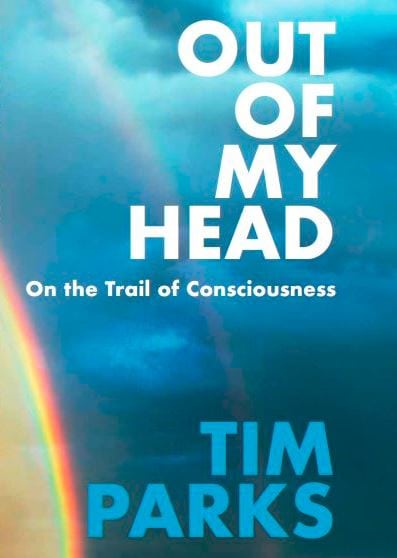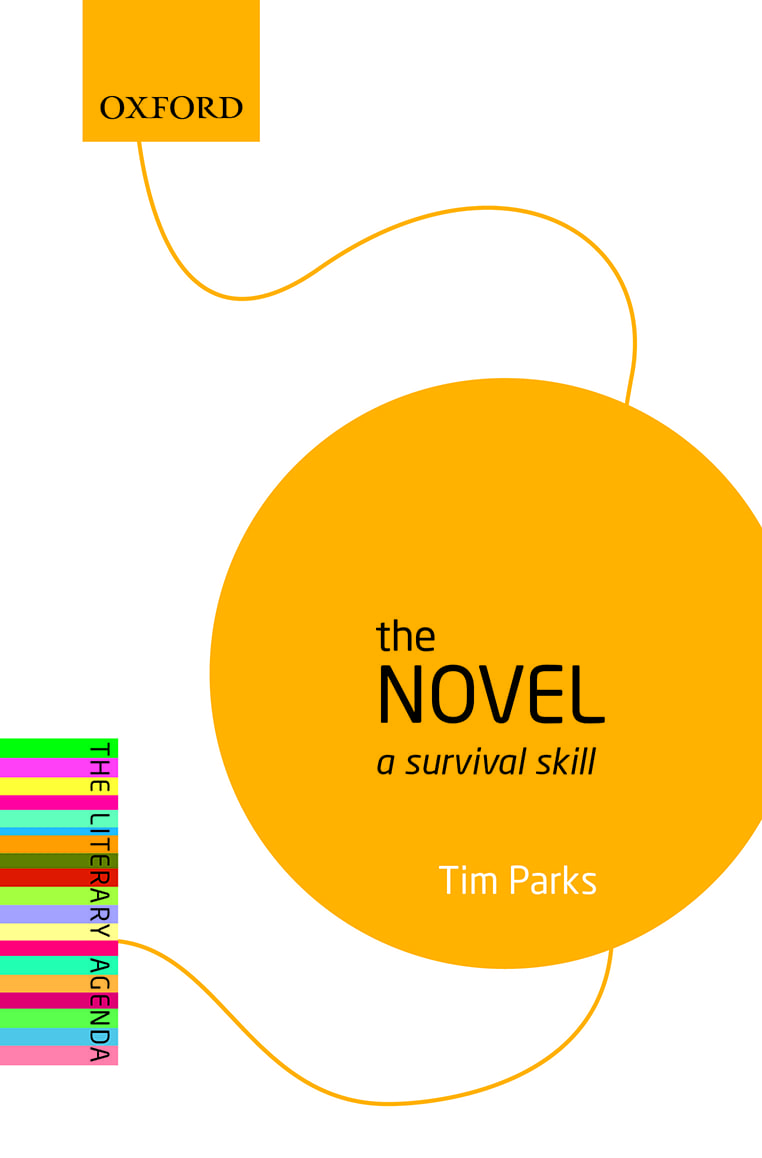The non-fiction may seem a little heterogeneous, but these books are just different masks for the same underlying vision. You can read short descriptions here, or click on the links for longer summaries and reviews.
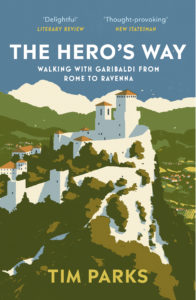
The Hero’s Way describes a four hundred mile walk or march, from Rome to Cesenatico on the Adriatic coast. Or rather two walks: Giuseppe Garibaldi’s in 1849 and mine and my wife’s in 2019. When the shortlived Republic of Rome finally caved into French troops, Garibaldi tried to march 4000 desperate men right up the Italian Peninsula, in scorching July. As many as eight foreign armies went after him. We followed, on foot, a hundred and seventy years later, telling their story, and ours.
Out of My Head is an attempt to draw readers into an engaging discussion, full of anecdote, dialogue and incidence, as to what exactly is going on when we experience the world. Is our experience really locked away inside the neural signals of our brains, colour, taste and smell, just ‘con jobs’ as the neuroscientist Christof Koch maintains? Meaning we are never really in contact with the world. Or could it be that our experience is one and the same as the objects experienced? This book explores the implications in a highly personalized, lively format.
The Novel, a survival skill is an attempt to bring together in one sustained and rigorously organized reflection all my thinking on the relationship between a writer’s life and his or her writing and again the way the reader interacts with the author’s life through the writing. It is a view of literature which draws from systemic psychology and positioning theory. Hopefully, it will give readers a much clearer and more credible sense of what is actually going on when they read than is the case with traditional literary criticism.
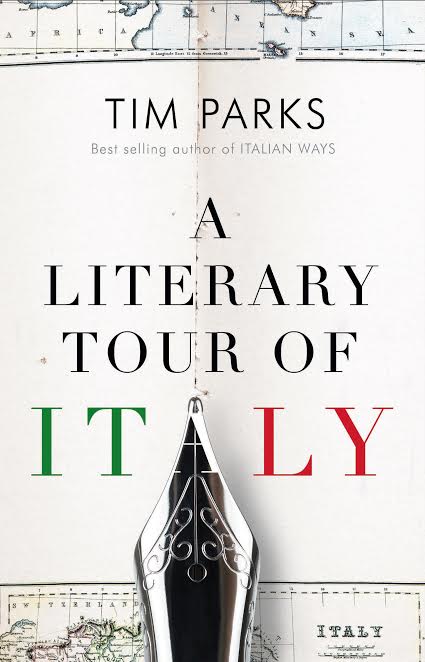 A Literary Tour of Italy is a collection of essays on Italian writers, artists and politicians from Dante through to Tabucchi, via Leopardi, Verga, Montale et al. The strength of the book, hopefully is how these literary reflections are linked to considerations on the Risorgimento and the Fascist period with essays on Mazzini, Garibaldi and Mussolini.
A Literary Tour of Italy is a collection of essays on Italian writers, artists and politicians from Dante through to Tabucchi, via Leopardi, Verga, Montale et al. The strength of the book, hopefully is how these literary reflections are linked to considerations on the Risorgimento and the Fascist period with essays on Mazzini, Garibaldi and Mussolini.
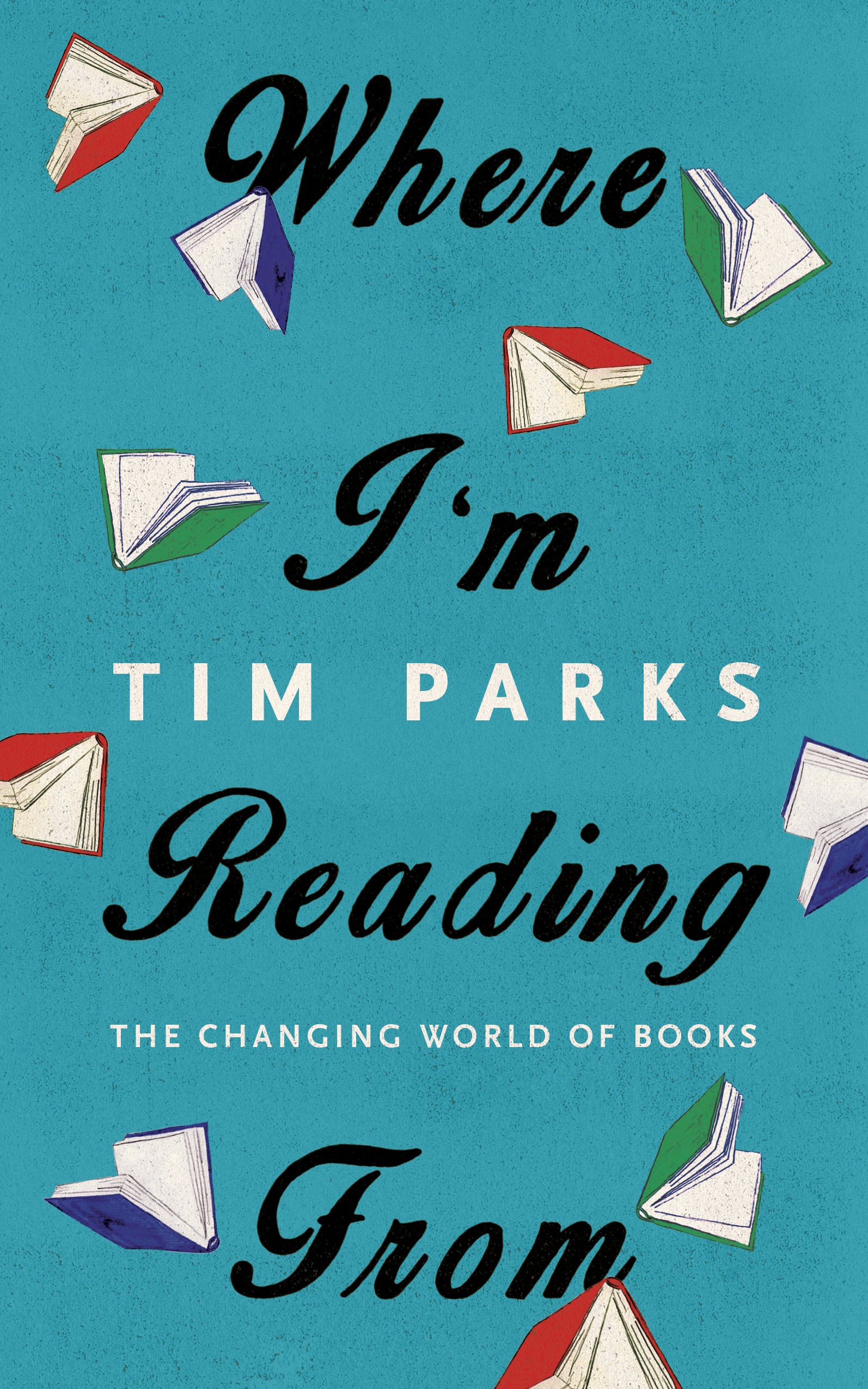 Where I’m Reading From is a collection of pieces written for the New York Review of Books online about writing, reading and publishing in the contemporary globalized world. The whole aim of all these pieces was to establish what is really going on today in the world of books and in the way we write them and read them and talk about them, as opposed to all the buzz and the pieties surrounding the literary world.
Where I’m Reading From is a collection of pieces written for the New York Review of Books online about writing, reading and publishing in the contemporary globalized world. The whole aim of all these pieces was to establish what is really going on today in the world of books and in the way we write them and read them and talk about them, as opposed to all the buzz and the pieties surrounding the literary world.
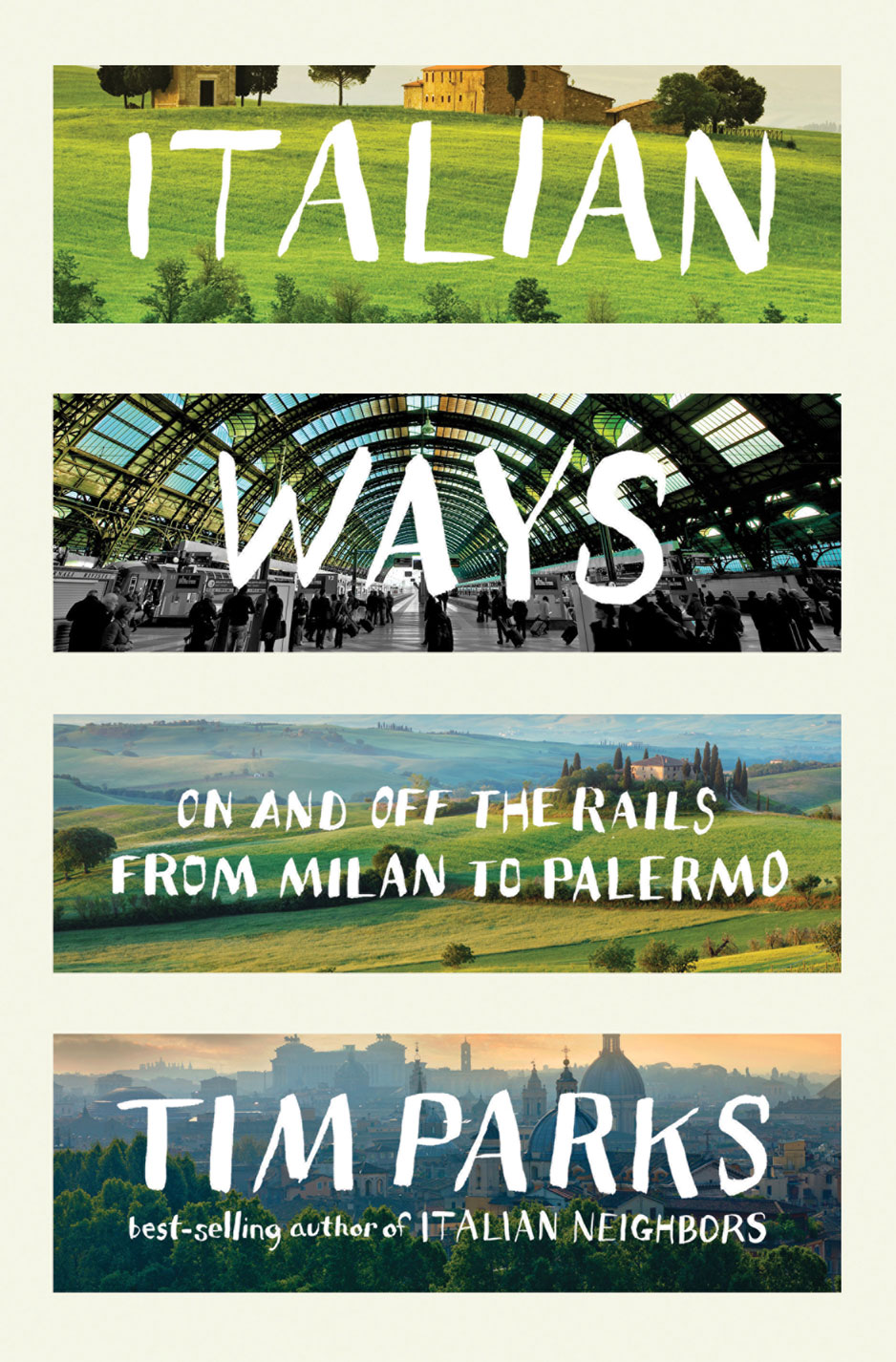 Italian Ways, on and off the rails from Milan to Palermo was a huge pleasure to write: an attempt to grasp the whole Italian Way of doing things through a reflection of my thirty years of rail travel in this country. Endless two-hour commutes from Verona to Milan on the Train of the Living Dead. Curating a show in Florence, back and forth on the Frecciarossa, all kinds of trips into the mountains and the lakes, and then a long trip down to Palermo and round the south coast of Italy, Reggio, Crotone, Taranto, Lecce, Otranto. What a treat, what discoveries. It’s as if I’d been saving up this part of Italy to cheer myself up with it thirty years on.
Italian Ways, on and off the rails from Milan to Palermo was a huge pleasure to write: an attempt to grasp the whole Italian Way of doing things through a reflection of my thirty years of rail travel in this country. Endless two-hour commutes from Verona to Milan on the Train of the Living Dead. Curating a show in Florence, back and forth on the Frecciarossa, all kinds of trips into the mountains and the lakes, and then a long trip down to Palermo and round the south coast of Italy, Reggio, Crotone, Taranto, Lecce, Otranto. What a treat, what discoveries. It’s as if I’d been saving up this part of Italy to cheer myself up with it thirty years on.
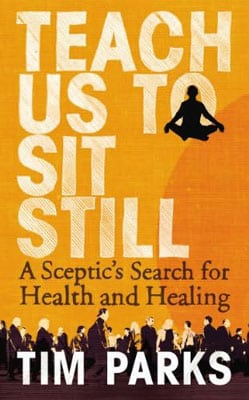 Teach Us to Sit Still is no doubt the most personal and in many ways the most exciting non-fiction I’ve written. It’s an account of a profound transformation of lifestyle brought on by illness and chronic pain. What looked at first like a nightmare descent into permanent discomfort became the catalyst for a deep examination of everything I do and ultimately an exciting and therapeutic change in direction.
Teach Us to Sit Still is no doubt the most personal and in many ways the most exciting non-fiction I’ve written. It’s an account of a profound transformation of lifestyle brought on by illness and chronic pain. What looked at first like a nightmare descent into permanent discomfort became the catalyst for a deep examination of everything I do and ultimately an exciting and therapeutic change in direction.
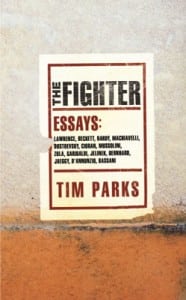 The Fighter is a collection of essays and articles written between 2001 and 2007. The subject matter ranges from World Cup Football to D.H. Lawrence, hypertext narrative and Italian politics, but a theme of struggle and conflict hopefully ties the pieces together.
The Fighter is a collection of essays and articles written between 2001 and 2007. The subject matter ranges from World Cup Football to D.H. Lawrence, hypertext narrative and Italian politics, but a theme of struggle and conflict hopefully ties the pieces together.
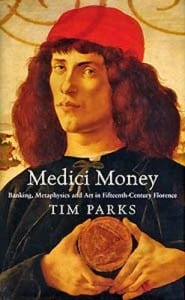 Medici Money is perhaps best summarized by its subtitle, Banking, Metaphysics and Art in Fifteenth-century Florence and is my first and quite probably my last foray into the writing of history. Above all the book focuses on the relationship between value that is countable, or monetary, and value, moral or aestetic, that isn’t. How do we keep the two in balance? Curiously, as a result of writing this book, I have been invited to be curator of an exhibition on banking in fifteenth century Florence which will be held at Palazzo Strozzi in 2010. It will be an exciting challenge to turn narrative and ideas into something visual.
Medici Money is perhaps best summarized by its subtitle, Banking, Metaphysics and Art in Fifteenth-century Florence and is my first and quite probably my last foray into the writing of history. Above all the book focuses on the relationship between value that is countable, or monetary, and value, moral or aestetic, that isn’t. How do we keep the two in balance? Curiously, as a result of writing this book, I have been invited to be curator of an exhibition on banking in fifteenth century Florence which will be held at Palazzo Strozzi in 2010. It will be an exciting challenge to turn narrative and ideas into something visual.
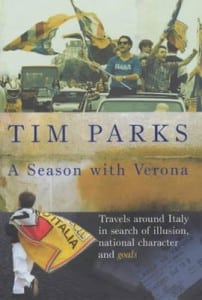 A Season with Verona is hard for me to characterize. It’s the (nail-biting) story of a football season, it’s a (crazy) series of travels around Italy, and most of all it’s an attempt to explore that vast mental space that people devote to football today. About football and Italy, then, but not exclusively for enthusiasts of football and Italy, let alone Italian football.
A Season with Verona is hard for me to characterize. It’s the (nail-biting) story of a football season, it’s a (crazy) series of travels around Italy, and most of all it’s an attempt to explore that vast mental space that people devote to football today. About football and Italy, then, but not exclusively for enthusiasts of football and Italy, let alone Italian football.
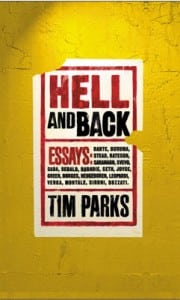 Hell and Back is a collection of essays, most of which were published in the New York Review of Books, though all were written with the idea of a book in mind. The project was to exploit invitations to write about other authors to put together a more or less coherent vision of how I see the writing enterprise.
Hell and Back is a collection of essays, most of which were published in the New York Review of Books, though all were written with the idea of a book in mind. The project was to exploit invitations to write about other authors to put together a more or less coherent vision of how I see the writing enterprise.
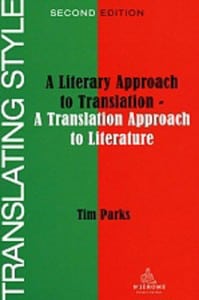 Translating Style looks at the way you can get close to an author’s vision by looking at what happens when you translate him. Or maybe it was just an excuse to write about some of my favourite writers, Lawrence, Henry Green, Samuel Beckett. There are also chapters on Woolf, Joyce and Barbara Pym.
Translating Style looks at the way you can get close to an author’s vision by looking at what happens when you translate him. Or maybe it was just an excuse to write about some of my favourite writers, Lawrence, Henry Green, Samuel Beckett. There are also chapters on Woolf, Joyce and Barbara Pym.
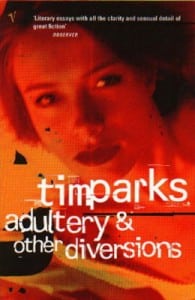 Adultery and Other Diversions was an attempt to fuse together essays and narrative in a form that would be both engaging and reflective. I suppose I wanted to find some way of getting all I’d been thinking and reading into some kind of coherent and readable form. I often think of this as my best book.
Adultery and Other Diversions was an attempt to fuse together essays and narrative in a form that would be both engaging and reflective. I suppose I wanted to find some way of getting all I’d been thinking and reading into some kind of coherent and readable form. I often think of this as my best book.
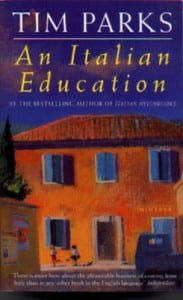 About five years after Neighbours, I put together An Italian Education which tackled the conundrum of national character through a light-hearted look at the way our kids are growing up here in Italy. I suppose this was the nearest I ever got to sentimentality. Not very close I’m told.
About five years after Neighbours, I put together An Italian Education which tackled the conundrum of national character through a light-hearted look at the way our kids are growing up here in Italy. I suppose this was the nearest I ever got to sentimentality. Not very close I’m told.
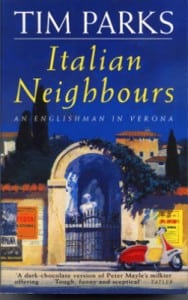 Around 1990 someone asked me to write a book on Italy then turned down the opening chapters I sent – not of the kind to encourage the English to dream of Tuscany, I was told. I published the book anyway; it had turned into an attempt to say and savour everything I’d learned in ten years in Italy by way of an account of our life with the neighbours in our small palazzo. That was Italian Neighbours.
Around 1990 someone asked me to write a book on Italy then turned down the opening chapters I sent – not of the kind to encourage the English to dream of Tuscany, I was told. I published the book anyway; it had turned into an attempt to say and savour everything I’d learned in ten years in Italy by way of an account of our life with the neighbours in our small palazzo. That was Italian Neighbours.

